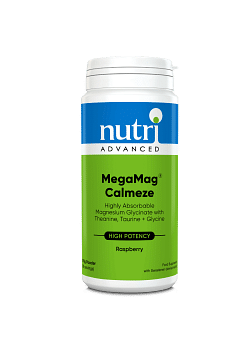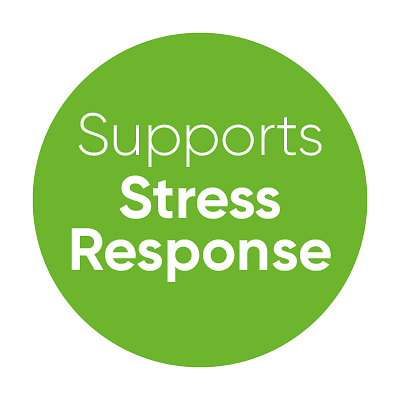How to Cope with Exam Stress
Why you can trust Nutri Advanced Every article on our site is researched thoroughly by our team of highly qualified nutritionists. Find out more about our editorial process.
Exam season is upon us once again, and the stresses and strains that come along with that can be a tricky time for students and parents alike. Whilst a bit of stress can be motivating and help students to knuckle down with their work; if stress levels start to soar out of control they can have the opposite effect and get in the way of students doing their best. They can even start to cause other health problems too.
The best way to deal with exam stress is to make a priority of nurturing body and mind to help support a balanced stress response.
Here are some simple dietary and lifestyle tips that will help to keep students calm and balanced throughout the next few weeks:
Sleep – Getting enough sleep is crucial for a healthy stress response; whilst it may be tempting to stay up cramming for a few extra hours the night before an important exam, a good night sleep will almost certainly have a much more positive effect on the result. Making time to wind down before bedtime with a relaxing bath will help to nurture a good night’s sleep.
Exercise – Few things can match exercise in terms of its stress-busting potential. Take time each day for some gentle exercise such as a short walk and you will reap the rewards in your exam performance.
Relax – If you find yourself thinking you don’t have any time for relaxation, that’s when you need it most! Choose an activity that helps you to relax and allocate some time for it each day – even just 10 minutes a day will do the trick. This may be listening to some music, doing some meditation or yoga, taking a relaxing bath or reading a favourite book.
Eat well – Many people find their eating habits become more erratic under stress and they rely instead on quick fixes such as caffeine and chocolate or even alcohol and cigarettes to get through the day. Choosing instead to eat regularly with fresh, nutritious meals and snacks will support a balanced stress response and maximize energy levels too. Eating well starts with a nutritious breakfast; choose slow release energy foods such as porridge oats and top with fresh fruit and a brain-boosting mix of nuts and seeds for maximum energy and brain-power!
Boost your nutrient intake – Every single bodily process requires specific nutrients to function at its optimum. During exam season, it’s important to think about nurturing energy levels, brain function and a healthy balanced stress response and it’s often a good idea to add in some extra supplementation to make sure your diet is meeting these additional demands. Here’s a summary of the key nutrients you might need a bit of extra help with over the exam season:
Key Nutrients for Exam Season:
Omega 3s – Crucial for many different aspects of good health and not least brain function. A daily dose of high quality omega 3 fish oil will help to feed the brain and support optimum cognitive function.
Magnesium supplements – Often referred to as nature’s tranquiliser, magnesium is a key mineral to support calm and relaxation. Magnesium is required as a co-factor in energy production processes and in a healthy stress response too, unfortunately dietary intakes of magnesium tend to be pretty low so it’s worth getting a bit extra if you know your body is under stress and / or your energy needs are higher.
B Complex – The B complex group of vitamins are essential for energy production, for a healthy stress response and are involved in the proper functioning of the brain and nervous system too; vital therefore for many different aspects of support during the exam season.
Vitamin C & Pantothenic Acid (B5) – These key vitamins are found in very high concentrations in adrenal tissues and support optimal adrenal balance.
Phosphatidyl serine, Choline & Acetyl-L Carnitine – Three key nutrients which specifically support brain cellular health.
L-Theanine – A natural amino acid found in tea that has been shown to have a soothing and calming effect on the nervous system.
Milk Protein Hydrosylate – A unique milk protein fraction that contains a natural bioactive peptide with relaxing properties. A number of studies have found milk protein hydrosylate to have anti-anxiety activity and that it may help to improve sleep under mild chronic stress.
Herbal Support – Asian Ginseng helps to support a healthy stress response whilst Ginkgo Biloba may help to support blood flow to the brain – great herbal support when a bit of extra help is needed.
Resources:
www.headspace.com - A great online meditation tool with simple 10 minute relaxation exercises for instant calm!
http://www.bbc.co.uk/programmes/articles/1HsY1X8ySjKBMVXPVCbP4qH/exam-stress - A useful article about how to spot when stress is getting out of control and what to do about it.
This website and its content is copyright of Nutri Advanced ©. All rights reserved. See our terms & conditions for more detail.
Nutri Advanced has a thorough research process and for any references included, each source is scrutinised beforehand. We aim to use the highest value source where possible, referencing peer-reviewed journals and official guidelines in the first instance before alternatives. You can learn more about how we ensure our content is accurate at time of publication on our editorial policy.
Most Popular Articles
-
7 Surprising Ways To Support Your Magnesium
If you are displaying signs of a magnesium deficiency, here are 7 ways to boost your magnesium levels that are easy to incorporate into your daily life. -
5 Best Vitamin C Supplements Picked By Our Experts
Learn more about the different types of vitamin C, the different benefits you get from different types, and what you get for spending more on a good supplement. -
Top 5 Vitamins For Energy And Tiredness Picked By Our Experts
The 5 best and most important vitamins for energy & tiredness including B vitamin food sources & best supplement forms for energy. -
Benefits of Myo-Inositol for Polycystic Ovary Syndrome (PCOS)
In this research review article, we take a closer look at a lesser-known natural compound called myo-inositol that has been found to have significant potential to improve many of the prevalent features of PCOS. -
Top 10 Reasons to Give Your Kids Omega-3
Read the top 10 reasons that kids should have plenty of Omega-3- an essential fatty acid- including for depression, brain function, sleep & reading/maths skills.














